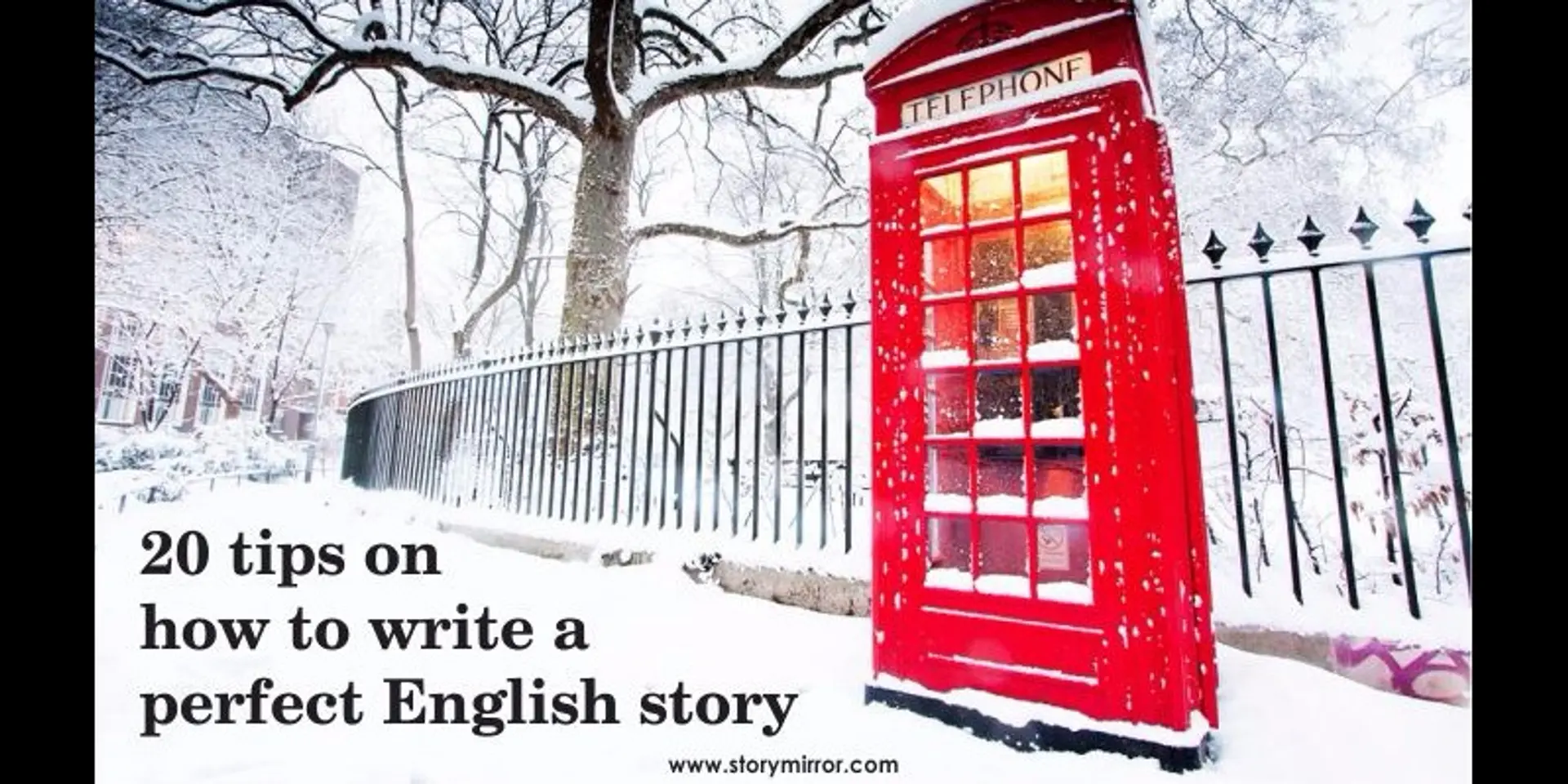

20 tips on how to write a perfect English story
Given below are few interesting and helpful pointers that one must keep in mind while you penning down your
Writing a perfect story or short story in English requires one to follow some sort of a process. Although, writers have different ways in which they approach writing a short story, this guide would be helpful in your process of writing one. If you want to perfect your story writing, you will have to seriously start reading short stories and novels from different genres. This process will build your comprehension skills as well as writing capacity. Given below are few interesting and helpful pointers that one must keep in mind while you penning down your...

1. Look for ideas, organize them and jot them down:You cannot build a story without any ideas.Some ideas will naturally strike you. Others will have to be extracted from your environment and people around you.
2. Write every day: Be it a line or a paragraph or a page,make time and space to spend with your words.
3. Read regularly: Stephen King says, “If you want to be a writer, you must do two things above all others: read a lot and write a lot.”
4. Keep looking for inspiration: Right from places to people can help you find your inspiration for stories. So be on the lookout.
5. Theme: You must have come across stories that don’t have a theme at all but it is something important for the story. Make sure that it isn’t stated in an obvious way. Let it gradually grow out of the story.
6. Refer to different genres: Read books from different genres as it will help you understand how they differ from each other, and eventually allow you to understand the zone you would want to write in.
7. Write a Plot: Plot is the most important part of the story. The better the plot, more gripping the story. Plot carries action in a story.
8. Develop the plot: Plot needs to be made more stronger and tight, so that there are no loose ends. If your story has loose ends it will lose its grip.
9. Write a sub-plot: It is important to show parallel stories that goes alongside the main plot or story; makes it more life-like. Sub plots makes the main plot more connected with roots and more captivating.
10. Narration: The narrative voice of the story must specify who is telling the story. Decide which narrative structure you want to apply to your story. The first and third person narration are the most commonly used narratives.
11. Setting: Setting your story in a place and time makes your story interesting and familiar.
12. Observe people and situations: Observation is the key to writing stories. You might have come across so many interesting people and incidents. Listen to their stories, experiences, thoughts processes, and opinions; it helps you as a writer as it provides more insight on life and other matters of life.
13. Developing characters: Before you start writing your story, know your protagonist and supporting characters well. Make sure that the readers feel related to the characters or at least make them care about your protagonist.
14. Style and tone: Use the speech that feels right for your story. Describe actions and use dialogues to show the readers what is happening. Use direct speech in quotes like, “Please take a seat,” instead of indirect speech like “He asked her to take a seat.”
15. Meaningful dialogue delivery: Dialogues are the most important part of any short story. Make sure they are meaningful. A good dialogue always has a purpose and builds towards something. You can also apply it to reveal a personality and what he/she is thinking.
16. Element of surprise: Without a surprise element, a short story or any kind of story becomes predictable, and if that’s the case, the readers would already have figured out the end of the story; this lessens the value of a story. Suspense is a very important element, and it must be used more often because it makes the story mysterious and full of thrill.
17. Re-write: Once you are done with your first draft start cutting, editing and rewriting your short story.
18. Proofread the final draft: Writing the first draft is not the end of the process. More you edit and proof read the better you story would get. Make sure proper editing and proofreading is done.
19. Perfect title for your short story: First, identify the importance of the right title. As you continue to work on your story, keep referring to your theme, emotion, imagery in it. Play with words and find out what can stir curiosity among your readers. Make a list of potential titles and finalize on one.
20. Practice: As clichéd as it sounds, practice really makes a man and woman perfect, well it implies to people of all age, categories and fields. So, keep reading and writing—that is the only resort.
Keep reading and writing, and make sure you are following the step guide given above carefully. Till then keep reading and writing more.






